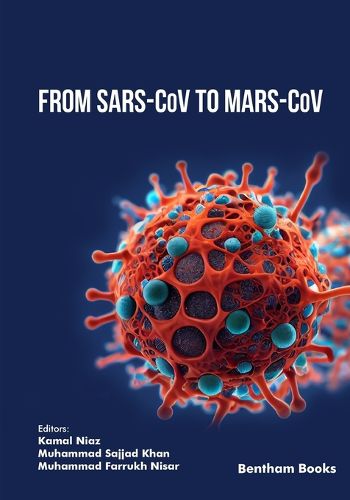Readings Newsletter
Become a Readings Member to make your shopping experience even easier.
Sign in or sign up for free!
You’re not far away from qualifying for FREE standard shipping within Australia
You’ve qualified for FREE standard shipping within Australia
The cart is loading…






Genetic Diversity of Coronaviruses (Volume 1) provides a comprehensive analysis of the genetic mutations and host interactions across three major coronaviruses-SARS-CoV, MERS-CoV, and SARS-CoV-2. This volume explores the evolutionary history, mutations, and emerging variants of these viruses, with a focus on understanding how they adapt to different hosts. The book is organized into three parts: Part I covers SARS-CoV, detailing its genetic mutations, host genetic diversity, and new variants. Part II focuses on MERS-CoV, offering insights into mutations and host adaptations. Part III addresses SARS-CoV-2, discussing its evolving variants and the role of host proteins. The book also discusses the connections between coronaviruses and neurological, epigenetic, and AI-related issues. Key Features: - In-depth analysis of genetic mutations in coronaviruses. - Exploration of host genetic diversity and virus adaptation. - Insight into emerging variants of SARS-CoV, MERS-CoV, and SARS-CoV-2. - Examination of host proteins' role in viral infections. - Discussion on the impact of AI and epigenetics on coronavirus research.
$9.00 standard shipping within Australia
FREE standard shipping within Australia for orders over $100.00
Express & International shipping calculated at checkout
Genetic Diversity of Coronaviruses (Volume 1) provides a comprehensive analysis of the genetic mutations and host interactions across three major coronaviruses-SARS-CoV, MERS-CoV, and SARS-CoV-2. This volume explores the evolutionary history, mutations, and emerging variants of these viruses, with a focus on understanding how they adapt to different hosts. The book is organized into three parts: Part I covers SARS-CoV, detailing its genetic mutations, host genetic diversity, and new variants. Part II focuses on MERS-CoV, offering insights into mutations and host adaptations. Part III addresses SARS-CoV-2, discussing its evolving variants and the role of host proteins. The book also discusses the connections between coronaviruses and neurological, epigenetic, and AI-related issues. Key Features: - In-depth analysis of genetic mutations in coronaviruses. - Exploration of host genetic diversity and virus adaptation. - Insight into emerging variants of SARS-CoV, MERS-CoV, and SARS-CoV-2. - Examination of host proteins' role in viral infections. - Discussion on the impact of AI and epigenetics on coronavirus research.